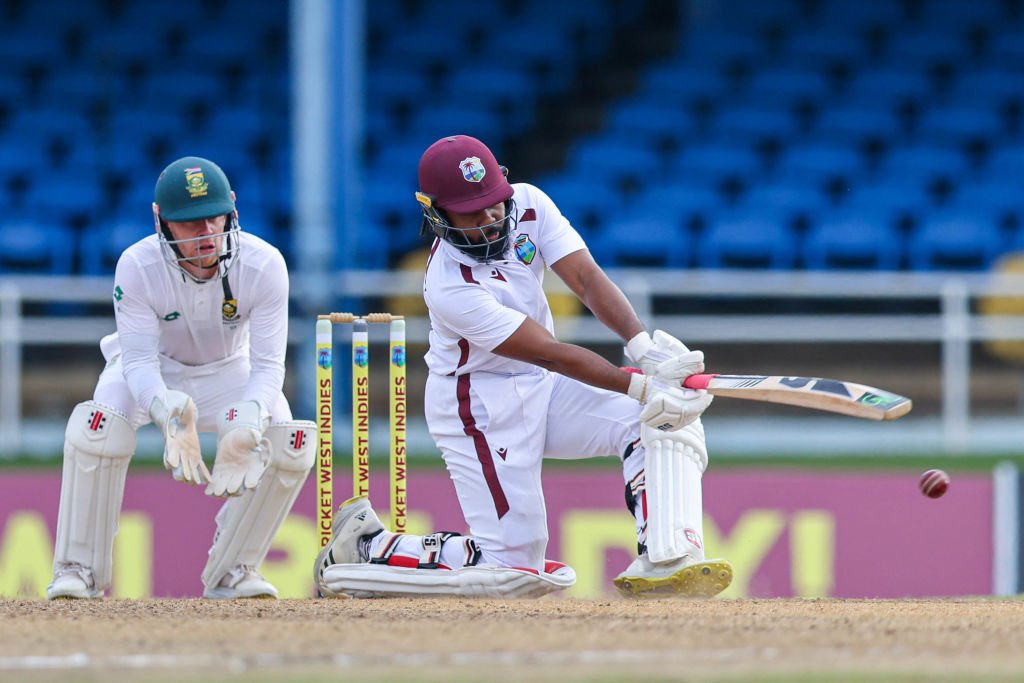
In the ongoing first Test between Pakistan and the West Indies in Multan, left-arm spinner Jomel Warrican delivered a remarkable performance, reigniting the visitors’ aspirations. On the second day, Warrican’s figures of 3 for 69 were instrumental in restricting Pakistan to a first-innings total of 230.
Pakistan commenced the day at 143 for 4, with Saud Shakeel and Mohammad Rizwan at the crease. The duo extended their partnership to 141 runs, posing a significant challenge to the West Indies. However, the introduction of spin turned the tide. Kevin Sinclair broke the partnership by dismissing Shakeel for 84, and Warrican capitalized on the momentum by claiming key wickets, including that of Rizwan, who contributed 71 runs.
Warrican’s consistent ability to exploit turning tracks has been evident since his debut. In 2015, during his maiden Test against Sri Lanka, he secured figures of 4 for 67, showcasing his potential on spin-friendly surfaces.
Despite Warrican’s efforts, Pakistan managed to build a substantial lead. Spinners Sajid Khan and Noman Ali dismantled the West Indies’ batting lineup, sharing nine wickets between them and dismissing the visitors for a mere 137 runs. This performance allowed Pakistan to establish a commanding 202-run lead by the end of the second day.
Reflecting on the day’s play, Warrican emphasized the importance of limiting Pakistan’s lead in their second innings. He stated, “The aim is to restrict them to under 250, or even 275. We don’t want it to get over 250 because it’s a spinning surface; it will be difficult.”
As the match progresses, the West Indies will rely heavily on their spinners, led by Warrican, to contain Pakistan’s batting and set up a feasible target for their batsmen. The outcome of this Test could hinge on how effectively Warrican and his fellow bowlers can leverage the turning conditions in the remaining days.

